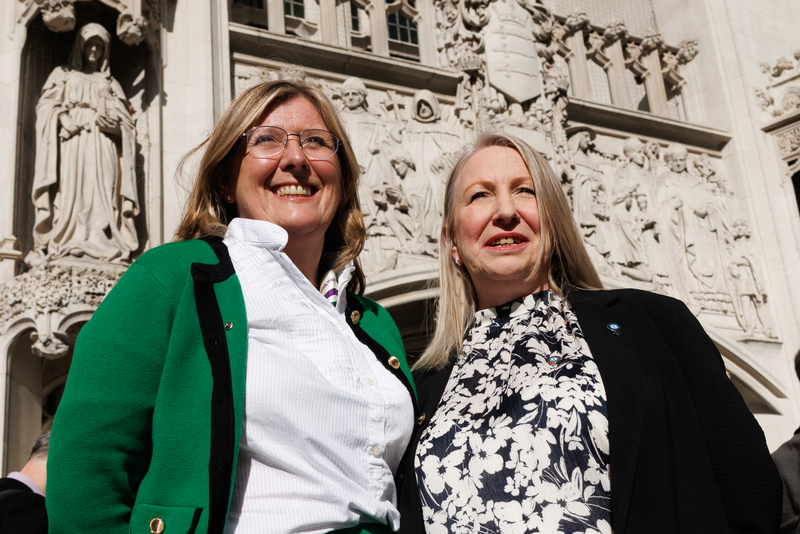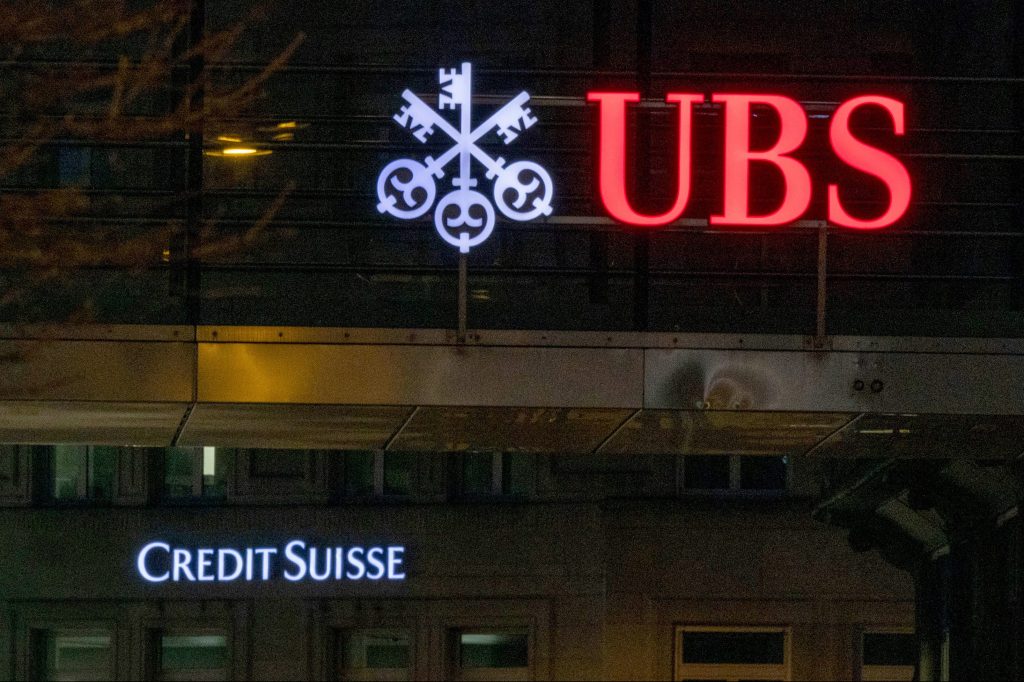Swiss bank shareholders finally got to have their say at the AGMs of Credit Suisse and UBS this week, closing a chapter in one of the biggest financial stories of the year so far. There was anger, humour, the odd conspiracy theory and more contrition than many expected.
“We failed, it was too late. I am truly sorry,” was the blunt assessment of Credit Suisse chair Axel Lehmann as he addressed shareholders at the 167-year-old bank’s last ever AGM on Tuesday 4 April. Around 2,000 turned up to the 15,000 capacity ice hockey stadium in Zurich that had been booked.
There was anger and frustration inside the meeting and protest outside, but not on the scale some had expected. The heavy security at the vent prompted ridicule from the first speaker who opened up by saying “I came without my gun this morning”.
Shareholders, however, did not hold back in their criticism, with some calling for senior executives to be jailed for allowing the culture that contributed to the bank’s demise to develop. One said: “This is a dishonourable day for Switzerland. I believe we have basically lost trust in the Swiss financial sector.” Another complained that in 2007 a single Credit Suisse share was worth “the price of a chateaubriand” but now could barely buy you a croissant.
“This is a dishonourable day for Switzerland. I believe we have basically lost trust in the Swiss financial sector.”
Credit Suisse shareholder
A clearly emotional Lehmann told the meeting: “We wanted to put all our energy and our efforts into turning the situation around and putting the bank back on track. It pains me that we didn’t have the time to do so and that in that fateful week in March, our plans were disrupted. For that, I am truly sorry. I apologize that we were no longer able to stem the loss of trust that had accumulated over the years and for disappointing you.
“One legacy issue after another had already seen trust eroded – and with it, patience dwindled … The bitter reality is that there wasn’t enough time for our strategy to bear fruit,” he continued. “We failed to stem the impact of legacy scandals, and counter negative headlines with positive facts to rebuild the lost confidence.”
After several hours in which shareholders vented their fury, Lehmann was narrowly re-elected as chairman and all seven directors who had not stood down had their mandates renewed. But approval was only narrowly secured, with none of the directors receiving more than 56% of the vote. Norway’s sovereign wealth fund voted against.
“We had to act immediately to stabilise the situation.”
Colm Kelleher, chair, UBS
Board members will continue in their roles until the merger with UBS is complete. It was no shock when a motion proposing fixed compensation for board members failed to get the necessary 50% of votes.
The UBS AGM, held in Basel on Wednesday – the day after the Credit Suisse gathering – was a less fractious affair with just over 1,000 shareholders attending. Worry about the implications of the merger, which will create a bank with $5,000bn of assets, was expressed, and there were numerous calls to treat employees fairly. But the merger and executive pay proposals were strongly supported.
Colm Kelleher, UBS chair, said integrating Credit Suisse would take between two and three years, and admitted “there is a huge amount of risk”. But he strongly justified the decision to take over the former rival bank without consulting shareholders. “We had to act immediately to stabilise the situation,” he told the meeting.
Outgoing CEO Ralph Hamers told the AGM the bank needed to stay agile and have purpose. Hamers is to be replaced by Sergio Ermotti, who led the bank between 2011 and 2020.
While those present broadly backed the merger, there was worry about the implications of creating what will be the fourth largest bank in the world. Several speakers called for greater clarity over climate targets, and there was a smattering of conspiracy theory as some speakers sought to blame ‘foreign values’ and claim ‘Washington’ had ‘destroyed Swiss banking’.
“We need to radically change the culture of bonuses – the wrong incentives – otherwise, we’ll be waking up one day with UBS having gone down the drain.”
UBS shareholder
Switzerland’s Ethos Foundation has raised concerns over the risks posed to pension funds and mortgage holders by the new bank’s dominant position. Ethos is a proxy advisor representing around 3% of shareholders. The organization’s CEO, Vincent Kaufmann, warned of a “systemic” risk and Ethos is calling for a separation of the Swiss banking division of Credit Suisse from the rest of the UBS Group.
Ethos and the Actares shareholders association were also among those emphasising calls to treat employees responsibly amid reports that global headcount could be cut by 30,000. One shareholder said: “These social consequences, also in Switzerland, could be dramatic and the reputation of UBS could also suffer.”
There were also warnings about the approach to executive pay, with one speaker saying that the merger “will in no way justify any inflation of remuneration” while another said, “We need to radically change the culture of bonuses – the wrong incentives – otherwise, we’ll be waking up one day with UBS having gone down the drain.”
Kelleher was at pains to emphasize the scale of the challenge that the merger poses. The next chapter will be about how a banking behemoth adapts to the world it has been born into.

















